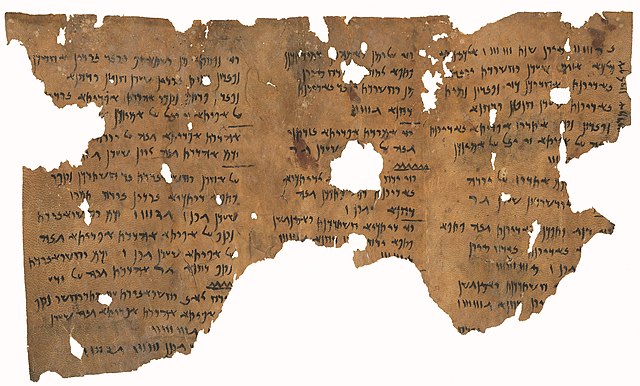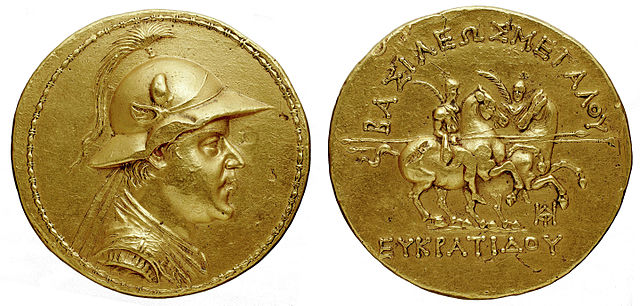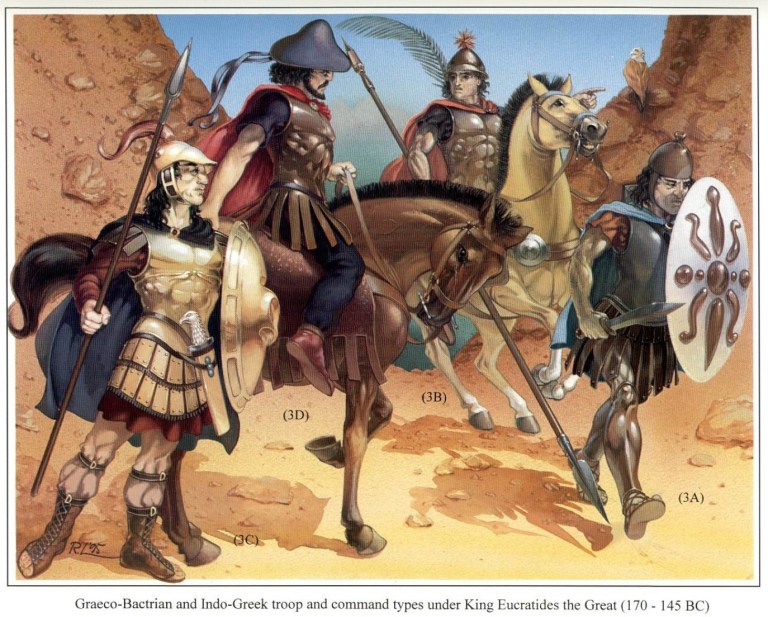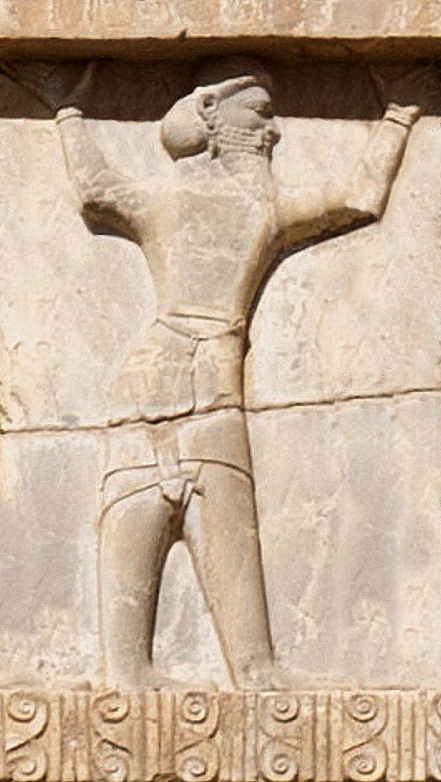Written by Ed Whalen, Contributing Writer, Classical Wisdom
The ancient region of Bactria was in what is now Afghanistan, Uzbekistan, and Tajikistan in Central Asia. Today, this is a remote, relatively little-known area. In the ancient past, Bactria was a culturally and economically dynamic region of great interest to ancient empires. In fact, Bactria’s contribution to history and civilization from 500 BC. to approximately 500 A.D is immense.
Bactria’s Early History
In the Bronze Age, Bactria was mainly populated by Iranian-speaking people who established urban settlements. The region first enters recorded history under the Persian Achaemenian Empire. During the sixth century BC, Cyrus II subjugated the region, making it a satrapy. Bactria became a province of the Persian Empire for two centuries during which time the area prospered.
Its geography to a large extent dictated its social structure, with nomadic peoples living in the plains and tribes inhabiting the mountains. In the fertile valleys, wealthy, sophisticated urban societies developed. Many scholars believe that Bactria played an important role in the development of Zoroastrianism.
Alexander the Great and Bactria
It appears that Bactria enjoyed a period of peace until the arrival of Alexander the Great. Leading the opposition to the Macedonian was Bessus, who made his last stand in Bactria before his execution. Alexander the Great campaigned in Bactria to secure his position in this rich region, even marrying Roxanne, the daughter of a Bactrian ruler.

Administrative document from Bactria dated to the seventh year of Alexander’s reign, 324 BC, source: Khalili Collection of Aramaic Documents
Alexander built numerous cities in the region and many Greeks and Macedonians came to settle there. Interestingly, there was already a large Greek-speaking minority in Bactria. Indeed, there were more Greeks in Bactria than in regions closer to mainland Greece.
The Rise of Bactrian Greeks
The Seleucid Empire ruled the region for over 70 years after the death of Alexander. The cities founded by the Macedonian conqueror flourished, and so did trade. In about 250 BC, Bactrian satrap Diodotus proclaimed independence and became king. Antiochus III the Great defeated Diodotus’ successor but recognized Bactrian Greek independence.
However, the rise of Parthia cut off the Bactrian Greeks from the rest of the Greek world. Meanwhile, Bactria grew rich and powerful, with a large army and heavy cavalry. It was poised to expand.
Bactrian King Euthydemus I and his son Demetrius crossed into what is now Pakistan, managing to conquer a large part of modern Pakistan and North-West India around 180 BC. These conquests placed a great strain on the Bactrian-Greek kingdom, leading to several revolts.
After a period of civil war that left the Bactrian Greeks divided among themselves, an usurper seized the throne of the kingdom and proclaimed himself King Eucratides I.

Gold 20-stater showing Eucratides. This is the largest-known gold coin from antiquity and was originally found in Bukhara, Uzbekistan.
Bactrians who had conquered parts of India established a powerful new region, known as the Indo-Greek kingdom, and advanced its territory far into the Ganges Plain in Northern India.
The Decline and Fall of Bactria
After the death of Eucratides I, the kingdom of Bactria fell into near-anarchy, leaving it vulnerable to nomadic invasions. In the second century BC, Indo-European nomads known as the Saka conquered Bactria and ended Greek rule. This invasion saw the burning of several Hellenic cities. The Saka were driven out by the Yuezhi, who had been driven from their homeland by the Xiongnu Confederation. The Yuezhi were deeply influenced by the Greeks and even adopted their alphabet.
In the first century AD, a prince of the Yuezhi, Kujula Kadphises, established the great Kushan Empire. Greek was one of the official languages of this realm. The Indo-Greeks were eventually conquered by the Saka. Small Indo-Greek communities survived until possibly 10 A.D and they adopted Buddhism. The Kushan Empire later conquered much of North-West India. They were later conquered by the Sassanian Persian monarchs who ruled the area until the arrival of the Muslims in the 7th century AD.
The Contribution of Bactria
Bactria was a cross-roads for many cultures. It quickly became a significant hub of trade and great cities such as Balkh were famed for their wealth. Chinese envoys who visited Bactria in the first century BC were amazed by its wealth and sophistication. They noted that the people disliked war, preferring trade and luxurious lifestyles. The merchants of Bactria contributed to the later development of the Great Silk Road.
The Greeks in Bactria, and later in India, played a particularly important role in the development of the region and indeed global culture. They introduced Greek sculpture, architecture, art and thought to the region. They have deeply influenced Classical Indian art and architecture. Bactria was also crucial in the history of Buddhism, especially during the Kushan period.
The Kushan Empire was very culturally diverse and eventually adopted Graeco-Buddhism, developed by Bactrian Greeks that ruled kingdoms in India. The Kushans were great benefactors of Buddhism and they helped to spread the religion into Central Asia and ultimately China. They also helped spread the influence of Graeco-Buddhist art, which still influences Buddhist art to this day.
Conclusion
Bactria is a historical region that has largely been forgotten, yet it played a crucial role in several Empires and the early development of the Silk Road. It was a centre of Greek power and culture despite being very distant from the Mediterranean World. The Bactrian-Greek kingdom developed a thriving culture and economy. Their culture spread into India, where they influenced the region’s art and religion, specifically in the development of Graeco-Buddhism.
References:
Rawlinson, H.G., 2002. Bactria, the history of a forgotten empire. Asian Educational Services.












One comment
Fascinating piece about cultural exchange or, rather, cultural transmission to the East. This reminds me of a story from the BBC a few years ago about archaeologists that are looking into whether there’s a direct Greek/Hellenistic influence on China’s famous “Terracotta Warriors”, perhaps stemming from this Bactrian history and ultimately Alexander the Great; it is quite interesting to consider how the sculptural style & size of the Terracotta Warriors is relatively unique in China, compared to Chinese sculpture before & after.
https://www.bbc.com/news/world-asia-china-37624943
Our apologies, you must be logged in to post a comment.